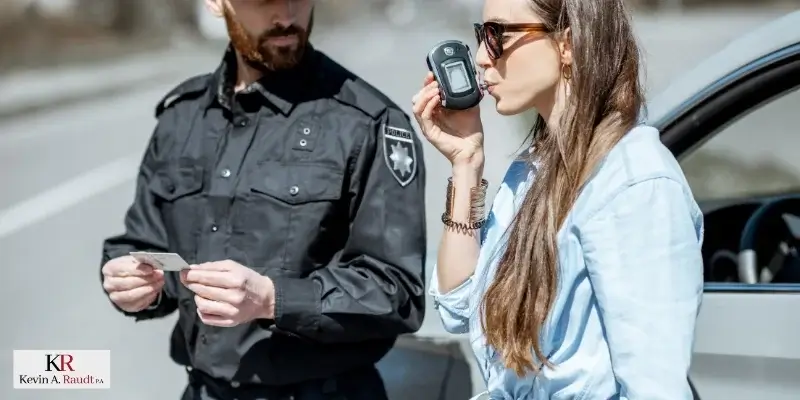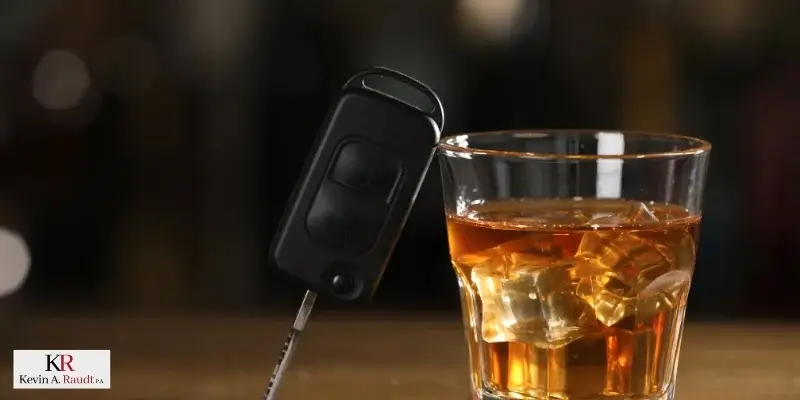Florida DUI Checkpoints: What You Need to Know
|
|
Last Modified on Oct 10, 2025
Florida DUI checkpoints are one of the primary ways for the state to deter and manage impaired driving. It’s beneficial to understand the purpose of these checkpoints, what your rights are regarding them, and what to expect when encountering them. If faced with a DUI charge, don’t hesitate to hire a Jacksonville DUI lawyer as soon as you are able.
Understanding Florida DUI Checkpoint Laws
DUI checkpoints, also called sobriety checkpoints, are predetermined traffic stops designed to check for driver impairment. It’s illegal for motorists to operate a vehicle while impaired by alcohol or other substances. DUI checkpoints are meant to deter drivers from getting on the road while under the influence and to catch impaired motorists.

In 2024, there were almost 3,000 fatalities and more than 160,000 injuries related to impaired driving in the state.
DUI stops are legal as long as they are operated according to certain guidelines. The public must be notified in advance of the location of these checkpoints. This information can generally be found in public announcements, police department websites, and local papers or news channels.
Your Rights at a Sobriety Checkpoint in FL
It’s critical to understand your rights when at a DUI checkpoint so you know what you have the right to do or not do. It’s not against the law to avoid a checkpoint as long as you didn’t break traffic laws to do so. However, if a law enforcement officer has requested that you pull over, you must comply.
Florida follows implied consent laws, meaning all drivers are assumed to have consented to breathalyzers. While you have the right to refuse field sobriety tests, understand that doing so may lead to your arrest if the officer feels they have probable cause. It is also your right to refuse a search of your vehicle if the officer lacks probable cause, a warrant, or your consent.
You have the right to remain silent and not answer any questions. You should provide any requested documentation, but you are not required to speak to law enforcement. These are just some of your rights while at a DUI stop. If you have questions about your rights or concerns about whether your rights were infringed upon at a checkpoint, consult with a qualified lawyer.
What Happens at a DUI Checkpoint?
As you approach a sobriety checkpoint, one or more officers will ask you to stop. They may request that you move to a designated area or pull over to the side of the road. An officer usually asks for personal identification or your driver’s license, and they may also ask for your vehicle registration and proof of insurance. Be sure to remain calm and patient throughout this process.
The officer may then ask a few basic questions, such as whether you have consumed alcohol recently or whether you feel okay to drive. While you are not required by law to admit to drinking, it is crucial that you remain respectful and answer carefully. During this interaction, law enforcement is looking for any signs of impairment, such as the smell of alcohol, slurred speech, or poor motor coordination.
If the officer has reason to believe you may be impaired and unable to drive, they may proceed with further sobriety testing. This may include subjecting you to a breathalyzer test, which detects your blood alcohol concentration, or various field tests, checking for signs of impairment such as imbalance or involuntary movement. If believed to be under the influence, you will then typically be taken into custody.
When to Hire a DUI Lawyer in Florida
There are several instances where you may feel the need to consult with a skilled DUI lawyer. Whether your rights were violated while at a sobriety checkpoint, you were unfairly charged with driving while impaired, or got into a traffic accident while under the influence, a DUI defense attorney can help you.
Why You Should Work With Kevin A. Raudt, P.A.
If you are in need of a capable DUI attorney, you should strongly consider working with Mr. Raudt. Attorney Kevin A. Raudt has been practicing criminal law in the Jacksonville, FL area for over 40 years. He is well respected amongst his peers and has yielded numerous positive client testimonials over the thousands of cases he has worked on.

FAQs About Florida DUI Checkpoints
Is It Illegal to Avoid DUI Checkpoints in Florida?
In Florida, it is not illegal to avoid DUI checkpoints as long as you don’t break the law in doing so. This means that you can avoid a sobriety stop if you operate your vehicle according to traffic laws, such as not exceeding the speed limit or making illegal turns.
Can You Fight a DUI Charge From a Checkpoint?
Yes, if you have been arrested and accused of DUI after going through a sobriety checkpoint, it is still possible to fight the charge. It is strongly recommended that you consult a qualified DUI defense lawyer. A lawyer can review your case details and develop a strategy to fight the charge.
What Happens When You Approach a Checkpoint?
When you approach a DUI checkpoint, a law enforcement officer usually asks you to pull over before requesting to see your license, registration, and proof of insurance. The officer then typically asks whether you have been drinking or are okay to drive. They may also ask you to perform field tests or subject you to a breathalyzer.
Do Lawyers Care If You Were Driving Drunk?
A criminal defense lawyer is not concerned with whether or not you were drinking and driving. Your attorney’s job is to effectively guide you through the criminal process, represent you, and advocate on your behalf, as well as protect your rights. If you need experienced legal counsel, you should strongly consider hiring a qualified DUI lawyer.
Strong DUI Defense for Your Case
When looking for experienced and skilled legal representation, look no further than the law office of Kevin A. Raudt, P.A. Contact our team today to get in touch with a capable and qualified DUI lawyer.
Florida DUI Checkpoints Resources:





